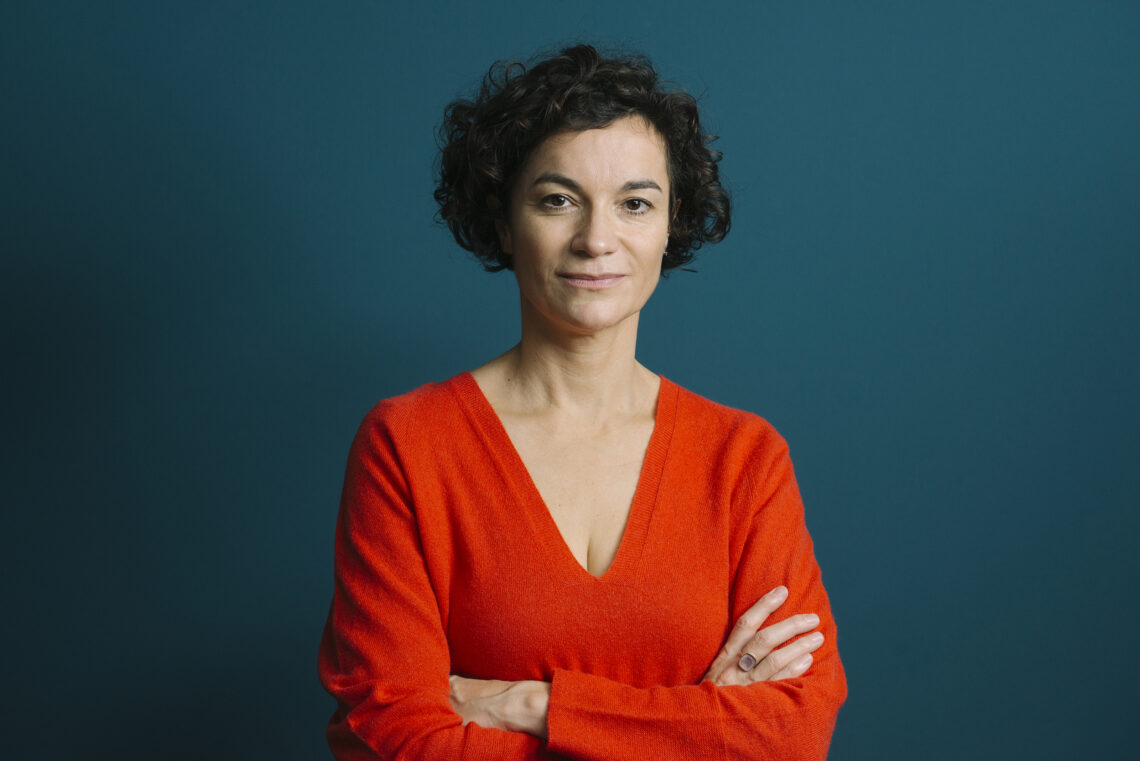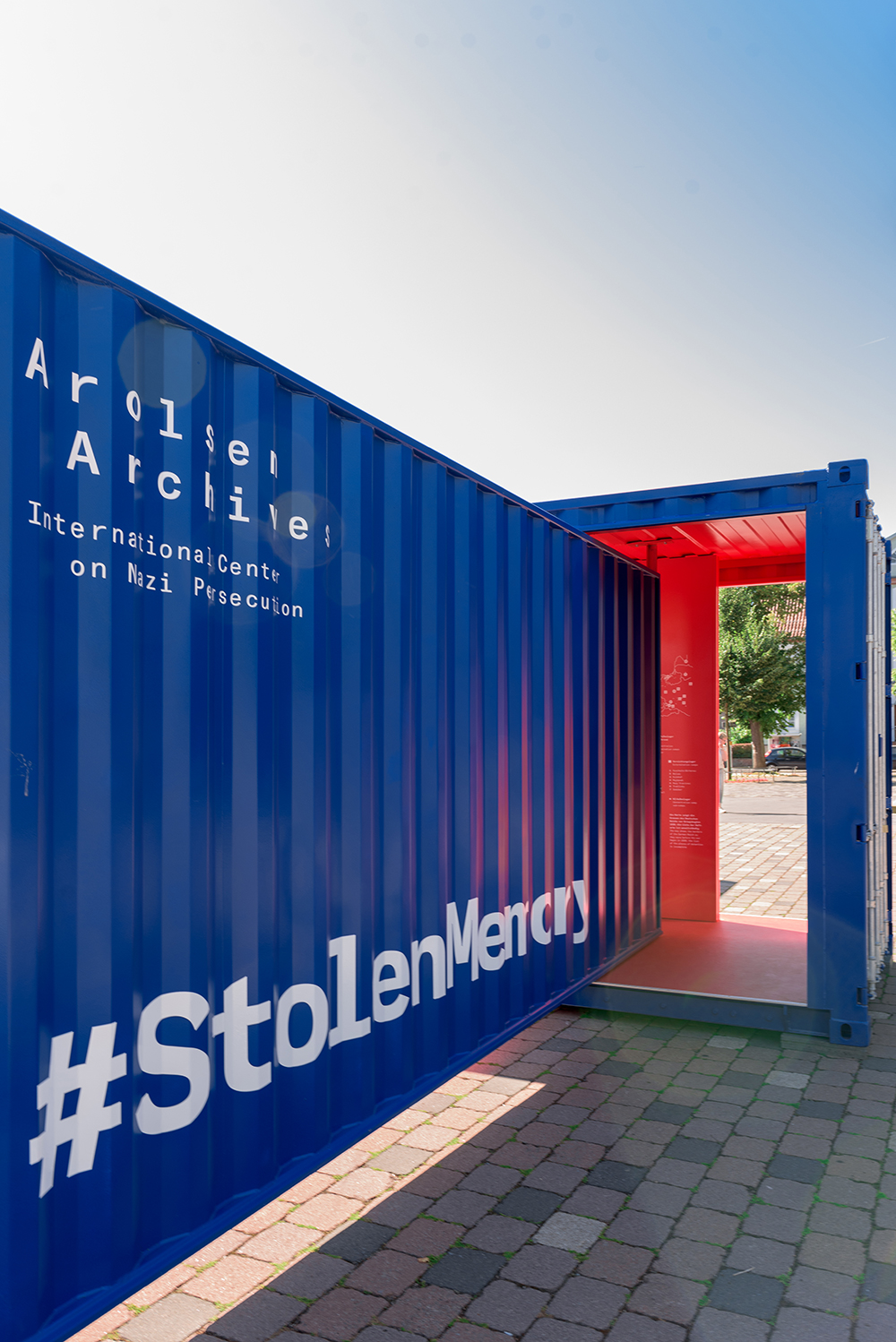#StolenMemory in Brussels: Personal items of concentration camp prisoners
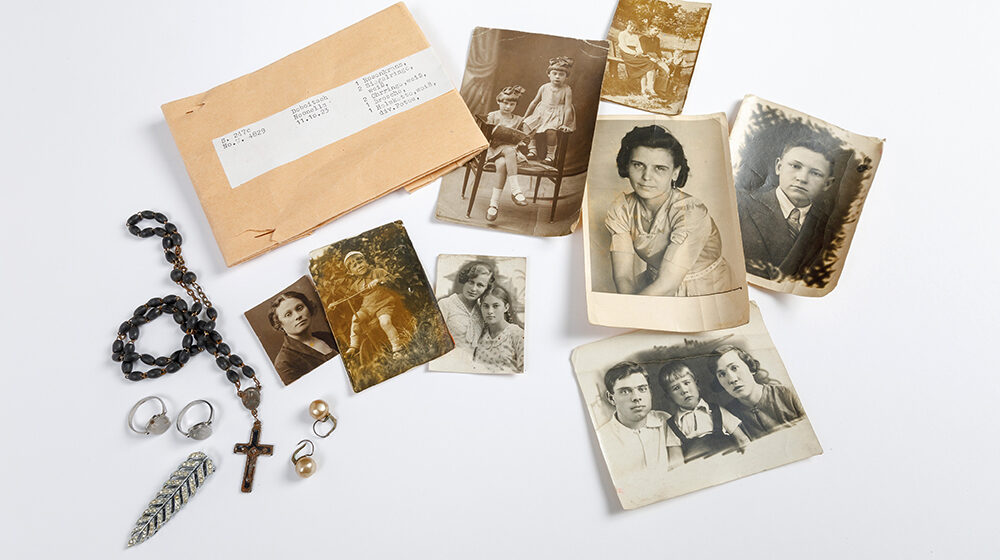
On May 8th, the War Heritage Institute and the Arolsen Archives will open the #StolenMemory travelling exhibition in Brussels. This open-air exhibition focuses on the last possessions of concentration camp prisoners and the question of how these objects can be returned to the victims’ families today.
The exhibition will be displayed in a converted shipping container in the Parc du Cinquantenaire until May 23rd. It was made possible by the Belgian Ministry of Foreign Affairs. The speakers at the exhibition opening will include the Director of the Arolsen Archives Floriane Azoulay.
Wedding rings, watches, and wallets with photos: When prisoners arrived at a German concentration camp, all of their personal items were confiscated. #StolenMemory is a campaign by the Arolsen Archives to return these objects to family members of the former prisoners. More than 600 families have been found since the campaign was launched in 2016, including ten families in Belgium. The exhibition shows photos of the stolen mementoes and explains the fate of ten victims of Nazi persecution from all over Europe.
The goal of the exhibition: Attention and support
The “Found” section of the exhibition focuses on personal items, known as effects, which have already been returned to family members. Posters recount the fate of the objects’ original owners and how the effects were returned to their relatives today. Using a smart phone, visitors can scan QR codes to view short videos in which the relatives themselves talk about their experiences. Yves Stappers from Waterloo, grandson of Belgian resistance fighter Edmond Ameye, says: “It is extraordinary for us to have received this watch, which belonged to someone who sacrificed his life for freedom – and to have received it at a time when so many freedoms are in question today, in our neighboring countries but also here in Belgium. The growth of nationalism, the rapid rise of the far right – it sends a shiver through me.”
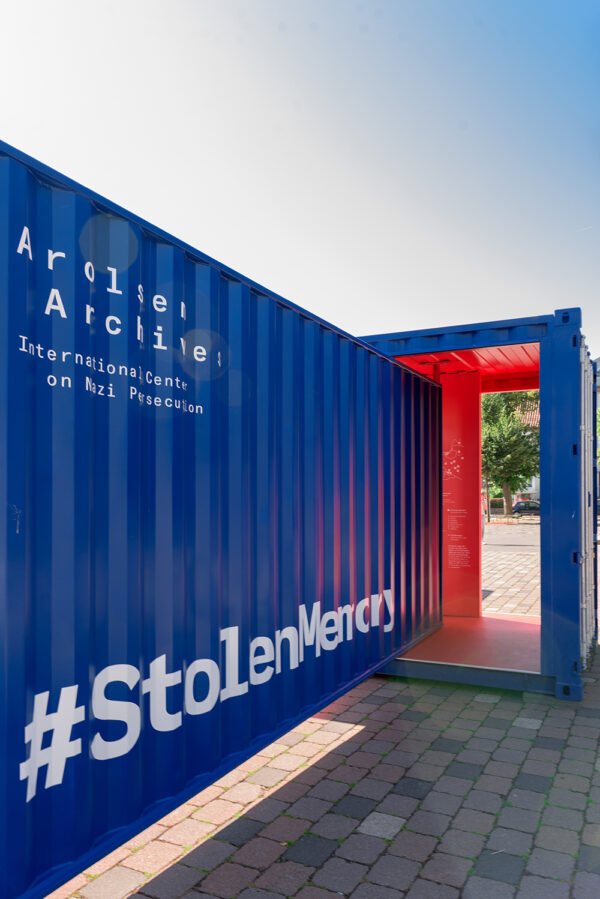
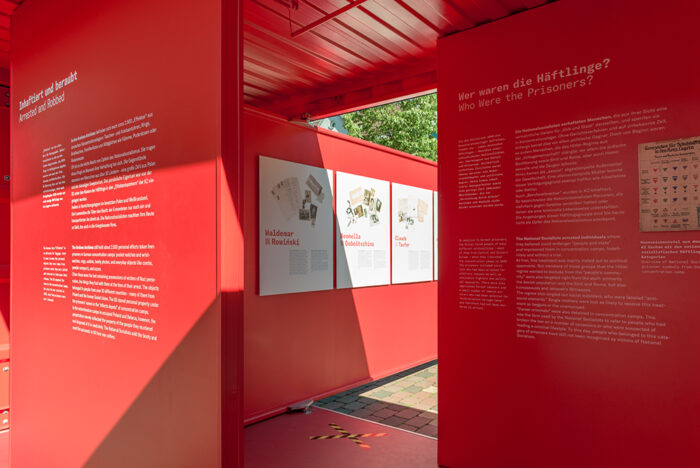
The #StolenMemory-Exhibition
The exhibition in the shipping container will travel around Belgium and the Netherlands for at least two years. After Brussels, the exhibition will visit Mechelen, Fort Breendonk and Liege. Three other exhibition containers from the Arolsen Archives are currently touring Germany. One of them will also begin travelling around Poland in May.
The “Searching” section looks at mementoes still waiting to be returned. One important message of the exhibition is that everyone can support #StolenMemory and help find traces of the victims and their families. The archive in Germany still hold effects belonging to nearly 2,500 people from all over Europe.
The emotional value of the objects
“Many victims of the National Socialists left behind no material traces for their families because the Nazis took everything from them,” says Floriane Azoulay, Director of the Arolsen Archives. The families are therefore often very surprised to receive the belongings. “Some of them knew nothing or only very little about this aspect of the lives of their grandparents, parents, uncles and aunts.” This makes it all the more important for the items to be given back to the families.
#StolenMemory in Belgium
The Arolsen Archives are the world’s most comprehensive archive on the victims and survivors of National Socialism. Their work is overseen by an International Commission made up of representatives from eleven countries. Belgium holds the chair of the commission this year, so the Belgian Ministry of Foreign Affairs decided to bring the #StolenMemory exhibition to Belgium and support the project with a donation of €200,000.
»Several of the people featured in the exhibition are from Belgium. We hope this exhibition will help raise young people’s awareness of the consequences of trivializing intolerance, fearing or hating others, discriminating against other people, and questioning certain basic premises of the rule of law.«
Gilles Heyvaert, Ambassador, President of the International Commission of the Arolsen Archives
Ministry of Foreign Affairs supports #StolenMemory
“The Ministry of Foreign Affairs is supporting the #StolenMemory exhibition in the context of the Belgian presidency of the International Commission of the Arolsen Archives. It is no coincidence that the exhibition is opening on May 8, the day we commemorate the end of the Second World War. The exhibition approaches this theme with great sensitivity by telling the personal stories of about ten victims of Nazis persecution. Several of the people featured in the exhibition are from Belgium. We hope this exhibition will help raise young people’s awareness of the consequences of trivializing intolerance, fearing or hating others, discriminating against other people, and questioning certain basic premises of the rule of law. Current events regularly show how urgent it is to make each and every citizen more aware of these issues that are so very important for our society and for our future.”
Gilles Heyvaert, Ambassador, President of the International Commission of the Arolsen Archives
Exhibition and website
The exhibition in the shipping container will travel around Belgium and the Netherlands for at least two years. After Brussels, the exhibition will visit Mechelen, Fort Breendonk and Liege. The website at stolenmemory.org/en/ provides fascinating insights to accompany the exhibition, including short animated films and complementary web stories which recount the fates of individual victims. This material has been designed especially for young people. The website also features extensive educational material which can be downloaded for free and used by schools and other educational institutions wherever the travelling exhibition is on display.
Where: Parc du Cinquantenaire
When: May 8–23, 2022
Opening: May 8, 1.30 pm
Opening hours: 9am till 5pm, closed on Mondays

